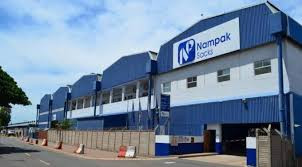
The African Development Bank’s (AfDB) commitments to Zimbabwe have now reached US$177 million, with US$137 million directly supporting public sector projects in governance, agriculture, energy, and emergency response.
The remaining US$40 million has been mobilised by AfDB to boost private sector growth through trade finance and credit lines, particularly targeting small and medium-sized enterprises (SMEs).
AfDB’s commitments are done in this way as the bank cannot formally lend to the Zimbabwe government owing to it owing the continental lender US$676 million.
“The bank’s Zimbabwe portfolio—now valued at approximately US$137 million—encompasses critical interventions in the public sector, including governance, social development, agriculture, energy, and emergency response,” AfDB said in a statement.
“On the private sector side, the Bank has mobilised over US$40 million to catalyse growth through lines of credit and trade finance facilities, unlocking growth opportunities for small and medium-sized enterprises.”
The statement was released at the conclusion of the 2025 Country Portfolio Performance Review (CPPR) workshop held last month from May 12 to 13, with the bank only releasing what was discussed during the meeting this Thursday.
At the meeting, voices from Zimbabwe’s private sector joined government officials, development partners, and African Development Bank representatives, adding fresh perspectives and renewed energy.
“This CPPR workshop is more than just an evaluation—it is a platform to co-create solutions, share knowledge, and build a collective vision for impact,” AfDB country programme officer Belinda Chesire said, on behalf of country manager Moono Mupotola.
- New perspectives: Building capacity of agricultural players in Zim
- I am not scared: AfDb chief shrugs off Africa food crisis
- New perspectives: Building capacity of agricultural players in Zim
- Xenophobic attacks against Zimbabweans barbaric
Keep Reading
“As we move toward 2025 and beyond, let’s commit to excellence, innovation, and alignment with Zimbabwe’s bold aspirations.”
The workshop will culminate in a new country portfolio improvement plan, a roadmap designed to strengthen project implementation, accelerate disbursement, and boost overall impact.
The plan will be submitted to the bank’s board committee on development effectiveness and the Zimbabwean government for joint approval.
“At the heart of the bank’s engagement in Zimbabwe is its flagship support to arrears clearance and debt resolution initiative, an essential component of ongoing governance reforms in public financial management, tax administration, and public procurement,” AfDB said.
“Zimbabwe also continues to benefit from African Development Bank-managed trust funds.
“These include the Sustainable Energy Fund for Africa, which is advancing renewable energy solutions such as feasibility studies for solar energy at Kariba; the Fund for Energy Inclusion, providing debt financing for renewable solar energy; as well as the Affirmative Finance Action for Women in Africa.”
The bank said the success of the 2025 CPPR had reinforced a shared determination to drive inclusive, resilient, and sustainable growth in Zimbabwe — powered by strategic partnerships and targeted investment.
Government officials reaffirmed their strong commitment to advancing these AfDB projects.
The Ministry of Finance, Economic Development, and Investment Promotion acting chief director Margireta Makuwaza highlighted the synergy between the bank’s strategic goals and Zimbabwe’s national agenda.
“The Zimbabwe Country Brief (2024–2026) speaks directly to our development blueprint—the National Development Strategy 1, NSD1 (2021-2025)—by prioritising governance, accountability, and private sector growth,” Makuwaza said.
“As we prepare for NDS2, these investments will be key to realising our Vision 2030.”
AfDB’s outgoing president Akinwumi Adesina was leading Zimbabwe’s arrears clearance process together with former Mozambique president Joaquim Chissano.
Sidi Ould Tah of Mauritania was elected the bank’s new president at its recently held annual meetings in Abidjan, Côte d’Ivoire, and will assume the office on September 1 of this year, for a five-year term.











